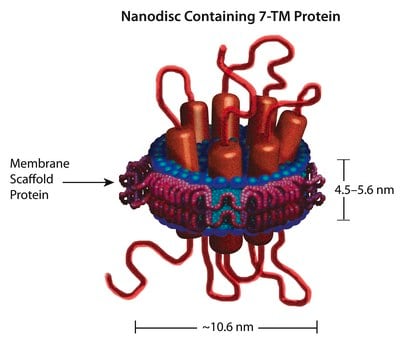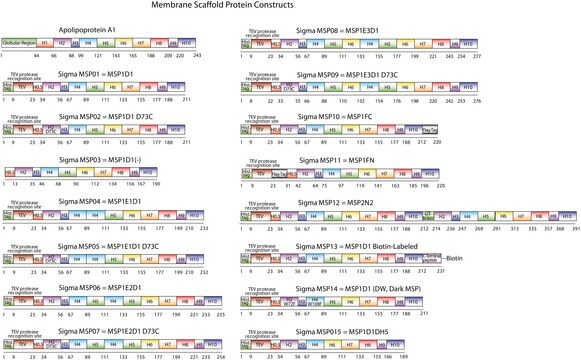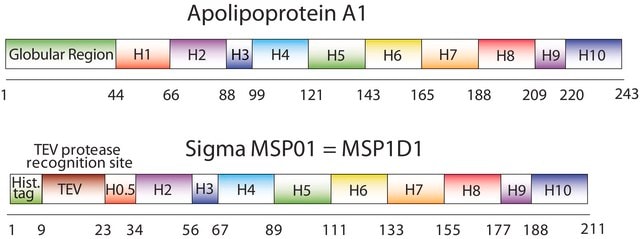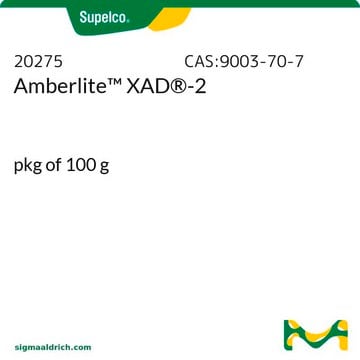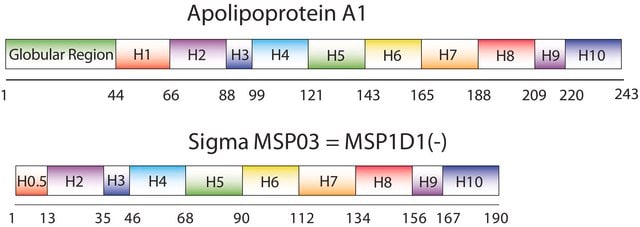MSP05
Membrane Scaffold Protein 1E1D1 D73C
recombinant, expressed in E. coli, Cysteine substituted at position 73
About This Item
Recommended Products
recombinant
expressed in E. coli
Quality Level
Assay
≥90% (SDS-GE)
form
buffered aqueous solution
shipped in
ambient
storage temp.
−20°C
General description
The first MSP, MSP1, was engineered with its sequence based on the sequence of A-1, but without the globular N-terminal domain of native A-1. The MSP1E1D1 D73C variant of MSP1 differs from MSP1 in the following facets:
- It deletes the first 11 amino acids in the Helix 1 portion (referred to as “H0.5” in the accompanying figure) of the original MSP1 sequence (which is known separately as MSP1D1).
- It repeats the Helix 4 portion (H4) of the original MSP1 sequence between the parent Helix 4 (H4) and Helix 5 (H5) segments of MSP1D1.
- It replaces one aspartic acid residue (D) with a cysteine (C) at position 73 of the original native A-1 sequence, located within the Helix 2 segment (H2).
Application
Legal Information
- 7,691,414 Membrane scaffold proteins
- 7,662,410 Membrane scaffold proteins and embedded membrane proteins
- 7,622,437 Tissue factor compositions and methods
- 7,592,008 Membrane scaffold proteins
- 7,575,763 Membrane scaffold proteins and tethered membrane proteins
- 7,083,958 Membrane scaffold proteins
- 7,048,949 Membrane scaffold proteins
Storage Class Code
12 - Non Combustible Liquids
WGK
WGK 2
Flash Point(F)
Not applicable
Flash Point(C)
Not applicable
Choose from one of the most recent versions:
Certificates of Analysis (COA)
Don't see the Right Version?
If you require a particular version, you can look up a specific certificate by the Lot or Batch number.
Already Own This Product?
Find documentation for the products that you have recently purchased in the Document Library.
Protocols
Nanodisc technology aids membrane protein solubilization, overcoming associated challenges in diverse protein classes.
Nanodisc technology aids membrane protein solubilization, overcoming associated challenges in diverse protein classes.
Nanodisc technology aids membrane protein solubilization, overcoming associated challenges in diverse protein classes.
Nanodisc technology aids membrane protein solubilization, overcoming associated challenges in diverse protein classes.
Our team of scientists has experience in all areas of research including Life Science, Material Science, Chemical Synthesis, Chromatography, Analytical and many others.
Contact Technical Service
